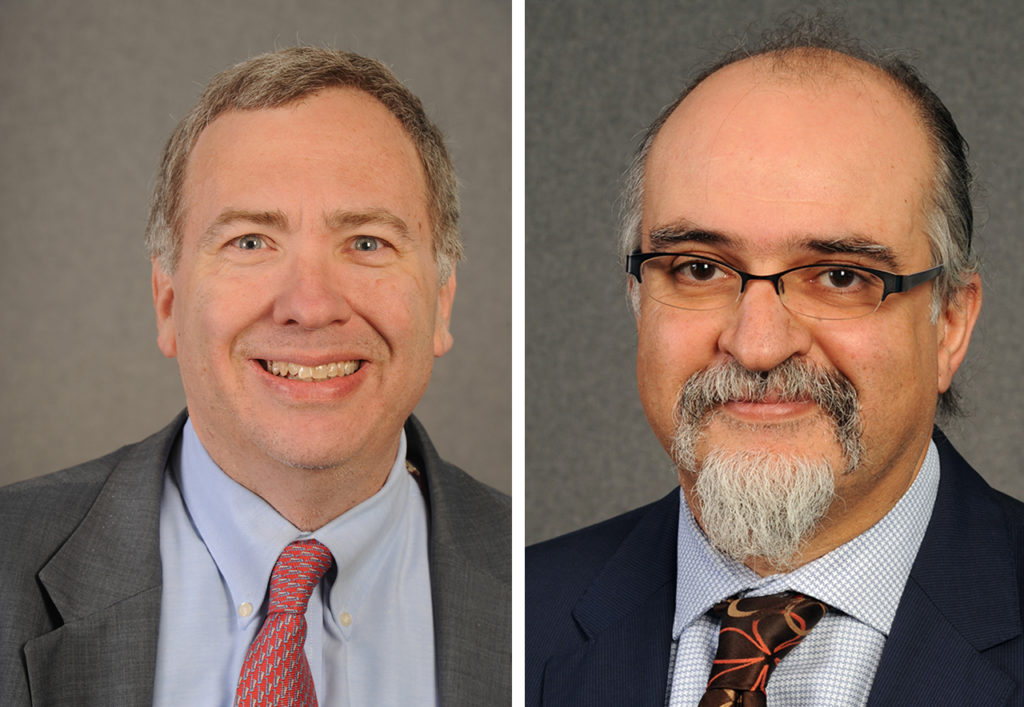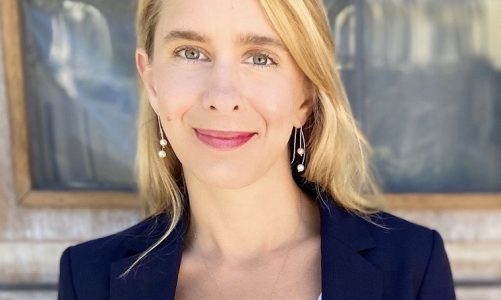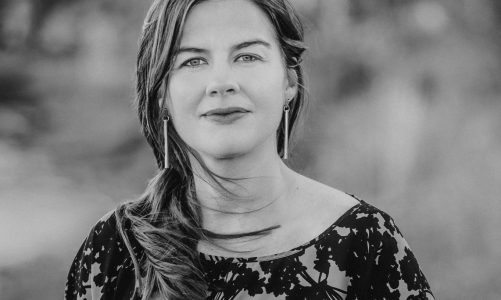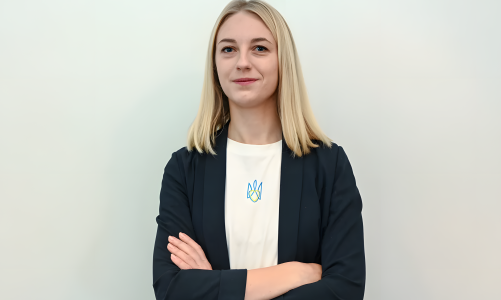
Image Credit | Washington Institute for Near East Policy, Washington DC
Ghaith al-Omari is a senior fellow in The Washington Institute’s Irwin Levy Family Program on the U.S.-Israel Strategic Relationship. He is the former executive director of the American Task Force on Palestine. He served as an advisor to the Palestinian negotiating team during the 1999–2001 permanent-status talks at Camp David and the Taba Talks. He held various other positions within the Palestinian Authority, including advisor to Palestinian President Mahmoud Abbas. He has testified numerous times before the U.S. Senate and the House of Representatives and has been interviewed on such platforms as C-SPAN, Al-Arabiya, PBS, Al-Jazeera,andBBC World News. His writing has been published in critically acclaimed periodicals such as The Wall Street Journal, Haaretz, Politico, The Times of Israel, The Washington Post, andThe Brookings Institute. He is the author of The Israeli-Palestinian Conflict and its Resolution: Sources and Discourses with co-author Tal Becker. Before his involvement with the peace process, Al-Omari graduated with a law degree from Georgetown University and worked as a law professor and human rights advocate in Jordan.
David Makovsky is the Ziegler distinguished fellow at The Washington Institute and director of the Koret Project on Arab-Israel Relations. He is also an adjunct professor in Middle East studies at Johns Hopkins University’s Paul H. Nitze School of Advanced International Studies (SAIS). In 2013-2014, he worked in the U.S. Secretary of State’s Office, serving as a senior advisor to the Special Envoy for Israeli-Palestinian Negotiations. He is a lifetime member of the Council on Foreign Relations and the London-based International Institute for Strategic Studies. His commentary on the peace process and the Arab-Israeli conflict has appeared in such distinguished publications as the New York Times, Washington Post, Los Angeles Times, Wall Street Journal, Financial Times, International Herald Tribune,andForeign Policy. He has authored and co-authored six books on the Israeli-Palestinian conflict, most recently Be Strong and of Good Courage with Dennis Ross in 2019. He has testified before the U.S. Senate and the House of Representatives. Before joining The Washington Institute, Mr. Makovsky was an award-winning journalist who covered the peace process from 1989 to 2000. He is the former executive editor of the Jerusalem Post, was diplomatic correspondent for Israel’s leading daily, Haaretz, and is a former contributing editor to U.S. News and World Report, where he served for eleven years as Special Jerusalem Correspondent. Mr. Makovsky received a Bachelor’s Degree from Columbia University and a Master’s Degree in Middle Eastern studies from Harvard University.
In the last several years, Mr. Makovsky and Mr. Al-Omari have made over 120 visits to American college campuses to discuss the Israeli-Palestinian conflict with undergraduate students.
Amelia Spalter: How did you two, who represent opposing sides on the highly contentious issue of the Israeli-Palestinian conflict, come to travel the country lecturing together?
Ghaith al-Omari: David and I have known one another since the 1990s, but when I moved to the States in the mid-2000’s we started working together intensively, as most people who come to Washington to work on [Palestinian-Israeli relations] do. Because, irrespective of what “side” you are on, you have a joint objective, which is arriving at a solution. Our involvement really deepened in about 2009 when David was invited to speak at the University of California Santa Barbara, and he invited me to come along. We were having lunch with Jewish and Muslim student leaders, and towards the end, I was talking to one of the students, and he said to me, “You know what, I’ve never met my Jewish colleagues before.”
To me, this was shocking, and I think to David, this was shocking as well. We took it for granted that people collaborate towards a common objective of reaching peace amid the conflict. We realized at that point that the dynamic on the campuses was very different from that of the one in our working world. We realized that we, the policy folks in Washington, have basically dropped the ball on this one. So, from that moment on, David and I have made this a regular part of what we do: Going to colleges and showcasing the basic, obvious, but rarely discussed point of fact, that you can be Jewish, you can be Muslim, you can be pro-Israel, you can be pro-Palestine, or you could be none of the above, but you can still talk about these issues in a constructive, collegial way. Even a friendly way, because in our case, David and I are friends, beyond matters of policy.
David Makovsky: That’s exactly right. There is also a Brown University angle to the origins of all this, believe it or not. Shortly after we spoke in Santa Barbara, we spoke at Brown, in March of 2010. It was particularly striking because two students, Avi Schaefer and Sami Jarbawi, had come together to invite us to speak. Sami’s dad was a Palestinian authority cabinet minister, and Avi had served in the IDF (Israeli Defense Forces). But this unbelievable tragedy occurred, Avi was killed by a drunk driver near the campus a few weeks before our talk. We were horrified, and we assumed the talk wouldn’t proceed. But Avi’s parents insisted it still take place, and that made it so emotional because when we suggested canceling, his parents approached us and basically said, “No, we need to do this to preserve the legacy of our son. This is exactly what we want. We want coexistence.” I’ll never forget that Ghaith won’t either. We still talk about it. We’ll never forget that visit to Brown. It was among our very first college visits together, and it cemented the importance for Ghaith and me that this was something we would have to continue to do.
AS: You’ve certainly held true to that promise because you have made over 100 college visits. For better or worse, what has been the most unexpected aspect of spending so much time with students?
DM: People in Washington really assume that campuses are supposed to be ahead of the curve, and we, Washington, are there to keep up with that curve where students are concerned. But as Ghaith alluded to earlier, we were struck to find that on this issue, the students were behind. They were in finger-pointing mode. Campuses full of young people should be leading the way, not trailing behind. What came across very clearly to us was that while many exhibited a great deal of passion, there was a shallowness to [their approach] that ran very deep. People just didn’t know a lot of specifics. They were always amazed to see that Ghaith and I weren’t only colleagues who tolerated each other but friends who liked each other. Regardless of what we said, the fact that we were saying it together seemed to stick out more than anything. So, there was a substance deficit we had to overcome.
GAO: Today, things are very, very polarized. There is a lot of pressure to take one side and take it to the extreme, usually exhibiting your allegiance by being very against the other side. What I find most amazing is that despite the price that some students want to set for this trend of polarization in terms of peer pressure and ostracization, on every campus that we’ve been on, there is always a core of people who are willing to pay that price to participate in the collaborative engagement. I find that inspirational. David and I are in Washington. We’re established in what we do. But the courage of the students who are willing to withstand social pressure and still work collaboratively while trying to understand where the other side is coming from is key. I want to be clear; these are not students who are forsaking their identities or giving up their beliefs. These are people who so strongly believe in who they are and embrace what they stand for that they can be secure in opening up to engage.
DM: That is one hundred percent exactly right. The students who want to reach out are the people who we find the most striking and leave us feeling okay about the future. These visits are worth it because it gives them a voice and reinforces the legitimacy of their views.
AS: When you disagree with one another, how do you keep the discourse civil without diminishing your commitment to your strongly held beliefs?
GAO: At the most basic level, we share a sense of trust that can only be developed by working closely with someone over a long period of time. When someone you genuinely trust says something that you disagree with, your initial impulse is not to assume that they’re coming from a place of malice but rather from a place of conviction. We have got to keep returning to this central theme: David and I are not just colleagues; it has developed into a friendship. Once that is the case, it becomes much easier to engage on sensitive topics. We simply say, “Look, I disagree, so explain to me where you are coming from.” One thing that you learn as a negotiator is to always go beyond the headline, so to speak, and try to determine a story’s core components or a person’s deeper reasoning. Not to focus on, “What do they think,” but rather, “Why do they think this?” In my and David’s case, it helps that we have a common objective, a two-state solution. Whenever two parties have a common objective, you can look at any disagreement and ask, “How does this position advance or limit our ability to reach our goals?”
That said, there are disagreements that will naturally arise from each side, focusing on different aspects of the conflict. I am focused on the way the Palestinians look at the issue. You have to work through this either by finding common grounds or by finding ways of changing the calculus of each side. For example, one of the issues we always talk about in [Israeli-Palestinian] negotiations is security. This issue is key to the Israelis and Palestinians. Israelis tend to take a very conservative view, understandably because of the terror that they have had to deal with. Sometimes as a negotiator for Palestinian interests, I try to say, “Okay, what are ways of meeting these security interests through mechanisms other than limiting Palestinian rights?” Sometimes I need not change the objective of the negotiation, only the tools with which I am using to fix the problem.
But this ultimately returns me to where I started. If you trust the people you are negotiating with, all of this becomes easier to deal with. Even when you cannot deal with something, it does not fundamentally change the relationship. Whereas, if you have no trust, every disagreement within the negotiation basically becomes an excuse to create a fight.
DM: That’s the key point. Our baseline is that we’re problem solvers who want to reach a goal. If we have that trust, then when we inevitably reach obstacles, we can be creative together in our approach to getting around them. If you’re convinced the other side has put up an obstacle because he doesn’t want an agreement, it’s a different kettle of fish. If your baseline is one of trusting that the other person wants this same goal no less than you do and that you are both problem solvers with mutual aims, then obstacles are not excuses to halting you in your tracks. They are a catalyst to find more creative solutions in moving forward.
I want to draw attention to what Ghaith said at the start on the issue of malice versus conviction. It was Ghaith who first brought that up to me, that if someone was raised a certain way, being taught certain views, then they don’t tightly align with those views for the purposes of bludgeoning you, the opposing side, they do it because those are the views they’ve always known. Once you realize people’s positions are not rooted in malice but rather whatever they’ve been taught, you’re able to acknowledge those views and rather than spend your energy trying to change their view, accept it, and ask, “Okay, this is where this other person is coming from. What does that mean going forward? And, taking that into account, what are the practical solutions available now?” Ghaith and I have been at this long enough that we can pretty quickly identify where the zone of possibility is.
AS: How do the issues prioritized by policymakers compare to the issues prioritized by civilian activists, and to what extent does the “zone of possibility” overlap between these two groups?
GAO: There is a major disconnect. The domestic politics in both places each have their own challenges, but neither place is united enough to be able to make the necessary concessions that you need to peace-keep. So, I see the people on the ground focusing on concrete areas of progress. We see this in many spheres. We saw it traditionally in the security sphere where Palestinian-Israeli security officials are engaging all the time. Today with the coronavirus, the amount of collaboration between the two sides is actually staggering. What we’ve been hearing from those on the ground has been, “Leave the big stuff for the future. Let’s deal with concrete, achievable things that can move us forward.” Meanwhile, back here, Washington is still stuck in this desire to reach this magical peace deal moment of a handshake on the South Lawn. It’s a worthy objective, but it is disconnected from reality. The mismatch stems from the work on the ground being much more modest but also more practical. In Washington, we remain a bit too ambitious in our objectives.
DM: That’s right, but the reason Washington is so problematic is also because the gaps between the leaders are so great. If you had leaders who were very much in sync, we would both be saying, “Go for it. Try to solve it all at once.” What is upsetting us, and we see this in the campus debates as well, is that [the discourse] becomes a salon debate—a shorthand for other matters. It becomes an indirect way of saying, “Where are you on progressive issues?” and so on. It’s not about “What’s the data on the ground?” Because those on the ground are often ahead of the curve. Those who are there are looking for gradual, practical ways to improve day-to-day life.
The Washington focus sometimes seems irrespective of the gaps between the parties that want to go for gold, so to speak. Then you’ve got the campus debates that are basically using bumper stickers to define the ethos of what it means to be a progressive or what it means to be a conservative or things like that. And while the intentions are good, sadly, it misses the mark. One of the things that binds Ghaith and I together is the belief in focusing on what’s happening on the ground. Let’s all focus on things we know to be real and use them to make a difference in people’s lives.
GAO: One of the things that really worries me to see in Washington is how this is becoming more and more of a partisan issue. When I was a Palestinian official—and I’d say this was true for both Israeli and Palestinian officials—if you spoke before Congress and successfully convinced all the members of Congress of your position, then you were all but assured of getting bipartisan support. Today, as David said, it has instead become less an issue of policy and more of a purity test for, “Are you progressive or are you conservative?” This partisan splitting doesn’t help the Palestinians or the Israelis. This might be another tool in our own domestic political debate. Palestinians and Israelis tend to be practical, as they have grown used to getting American support based on practical reasoning using a bipartisan approach. So this is a trend that worries me, and I know it worries Israelis and Palestinians as well.
AS: A source of much partisan division in campus discourse is the correct classification of Hamas. The simplified situation is that groups run the full spectrum from some arguing that Hamas is an elected government just like any other to groups that argue Hamas is an outright terrorist organization and should be treated as a criminal enterprise, not at all a legitimate diplomacy. So, which is Hamas, government, or terrorists?
GAO: It’s a terrorist organization that governs. Hamas is clearly a terrorist organization by law, and not only by U.S. law. It is designated as a terrorist organization in Europe, both by the European Union and individual European countries. It is even designated as a terrorist organization in many Arab countries, either formally, such as in Egypt or the United Arab Emirates, or informally, like in Jordan, where those affiliated with Hamas are not allowed to enter the country. So, it is a terrorist organization by law, but also by the fact, because if you blow up a civilian, what are you? You are a terrorist.
They also are a government. They are in charge of close to two million Palestinians in the Gaza strip, which creates a very complex situation for its neighbors. Two of Hamas’ biggest enemies are Israel and Egypt. Israel because Hamas makes no qualms about its desire to destroy Israel and acts on those desires. Egypt because Hamas is an extension of the Muslim Brotherhood. Yet, both Israel and Egypt find themselves having to deal with Hamas because it’s not just about Hamas. It’s ultimately about the lives of the two million Palestinians who are living in the Gaza strip. If their humanitarian needs are not met, then we’d see an active disaster, and you cannot meet their needs unless you interact, directly or indirectly, with Hamas. It creates a highly complex situation.
Another dimension of Hamas that is often overlooked within our American debates is that besides the terror and besides the government, Hamas is a totalitarian regime. Yes, it once won one election. Yet, if you look at the way that it governs Gaza, they arrested a bunch of civil society activists from Gaza because [the activists] dared organize a Zoom conversation with other activists from within Israel. So, putting aside their role as terrorists, rather than looking at Hamas through the broader lens of this conflict, keep in mind that the two million Gazans who are living under Hamas are living under a police state. More than that, a totalitarian regime, a complete dictatorship.
AS: You often return the focus to the issues on the ground, you have both worked in the field, Ghaith as a Palestinian negotiator among many official positions, and David as an international journalist and in the U.S. Secretary of State’s office. What aspects of those experiences are most influential on your perspective now that you’ve returned to Washington?
GAO: I can recall a specific aspect of the job that was most memorable, the dynamic between the negotiators. The Palestinians and the Israelis and their respective negotiators have been at this for so long that the relationship between them has become personal. Palestinian negotiators know the birthdays of not only the Israeli negotiators but of their kids and their spouses. There’s war, but there’s joking, all of that is there at once, and it’s very striking.
I recently recalled a strange moment, one time the Israeli and Palestinian negotiators were invited to speak to members of the Northern Ireland peace process after the Good Friday agreement. Towards the end, one former IRA (Irish Republican Army) Commander came to me and said, “You know, Palestinians and Israelis are very strange. You seem to have extremely good personal relations between one another, but you cannot agree on anything. We and the Protestants cannot stand one another, yet we managed to find a deal.” There is a stark contrast between the true warmth between Palestinian-Israeli negotiators and their inability to make that final jump into an idea. The more you’re around it, the more striking it becomes.
DM: I agree. What you’re left with, Amelia, is just too much history and too little geography. These people live right next door to each other. I go back to Jerusalem from Ramallah in less than half an hour’s drive. And yet, each side is eager to hear impressions about the other side, “What’s going on over there, how’s life on that side?” But they don’t visit each other.
There was a time, as Ghaith said, that they used to know the other side’s families. They even knew their pets. They knew everything about the others during those years because when you’re negotiating, you’re cooped up in the same room together all the time. But now they don’t know each other in the same way, even though they still live next to each other, because there hasn’t really been a negotiation since 2013 or 14, and even that was brief. Now they read about each other in the media, they see the others on the TV, and they can still tell you the nuances about the ultra-orthodox factions and which Shahs are the more moderate, but the human contact is not what it was during Ghaith’s time, and that’s sad.
AS: The world has never experienced less human contact in recent history than during COVID-19’s quarantine precautions. Yet, you mentioned earlier that combatting the virus has actually brought the two sides together by way of a shared objective. Could you expand on the impact the pandemic has had on the relationship between the two parties?
GAO: I remember when there was an outbreak of Bird Flu during the second Intifada. I was living in Ramallah, and there was an Israeli tank literally right in front of my house. I was in a hot zone where there had been clashes. I remember sitting in a corner that I thought would probably be away from bullets, talking on the phone with a senior Israeli person in the Prime Minister’s office, trying to figure out how we would stop the spread of the bird flu from Gaza to southern Israel. And you are seeing the exact same thing happening today [with COVID-19.] As we speak, Israeli and Palestinian soldiers, doctors, administrators, finance people, and so on, continue to engage with one another [to mitigate the impacts of COVID-19.]
DM: Exactly right. It should not take a pandemic to realize this is a war where everyone’s on the same side. It is sad that the Palestinians and Israelis aren’t cooperating with each other. I’m not here to validate the Israeli side, but I think that on the Palestinian side they feel that to even begrudgingly acknowledge that, “Yes, Israel has been very helpful,” is somehow giving Israel a PR boost, and [the Palestinian side] doesn’t want to do that. So, it takes the UN envoy Nickolay Mladenov, who Ghaith and I know well, to say what everyone else knows: that a pandemic has brought Israel and Palestinian authorities in the West Bank closer together. And the question is, will it have any residual effects when the crisis is over? I’m not holding my breath, but crisis moments like this can bring two sides together and create a realization that not all their problems come from the other.
AS: What actions do you suggest college students take to civilly engage with these topics while still staying true to their positions on the issues?
GAO: First and foremost, a dialogue has to be established. And when I say dialogue, I’m not talking about warm, fuzzy, kumbaya, holding hands, and talking about how great life is. No, these are very difficult, very emotional issues that have to be addressed. People have to get things off their chest and understand where the other side is coming from. So, this requires a degree of deep engagement.
It’s great if this is student-led, and sometimes it is, but I think this is often where faculty and the administration have a responsibility. Sadly, what we’ve seen on some campuses is that the faculty tend to be a part of the problem and not a part of the solution. What I would hope is for university leadership to create… I don’t like the word, but I’m going to use it, “safe spaces,” for people to discuss this issue. If the university wants to do that, there are a lot of successful models to be adopted. It is up to the university leadership right now to be proactive and to push and to encourage this dialogue. Because frankly, from my perspective, this is not what’s happening in Brown or any given campus.
Students have the right to do and should do whatever they want to do. However, I fear the implications of this towards policy and towards reality on the ground there. I don’t want the U.S., whether it is on college campuses or in our larger communities, to be part of prolonging the conflict. I want to be part of resolving the conflicts. Every time we add to the divisiveness, we contribute to the continuation of the conflict on the ground there, and frankly to the suffering, death, injury, and loss of life that we see there. So, I put a lot of emphasis on the role of the university leadership, both faculty, and administration, because we need to take this more seriously.
DM: We have to look at this through problem-solving and not treating it as a superficial morality play with bumper stickers and slogans where one side just demonizes the other side. How do you bring people together versus ripping a campus community apart? You avoid divisive steps. You don’t do BDS [Boycott, Divest Sanctions] whose campus chapters often can’t even say the words “two-state solution.” You look at ways to bring people together. I think you do that through neutral study groups, academic trips to Israel, alternative spring or summer breaks where you spend time on social action that builds up both communities. Ask, “How do we build up both sides?” Not, “How do we tear one side down?”
*This interview has been edited for length and clarity.





Can I simply just say what a comfort to discover somebody that really understands what they’re discussing on the web. You actually understand how to bring an issue to light and make it important. A lot more people ought to look at this and understand this side of your story. I can’t believe you are not more popular given that you most certainly possess the gift.